Is Wingstop Halal? It Depends on the Country and Location
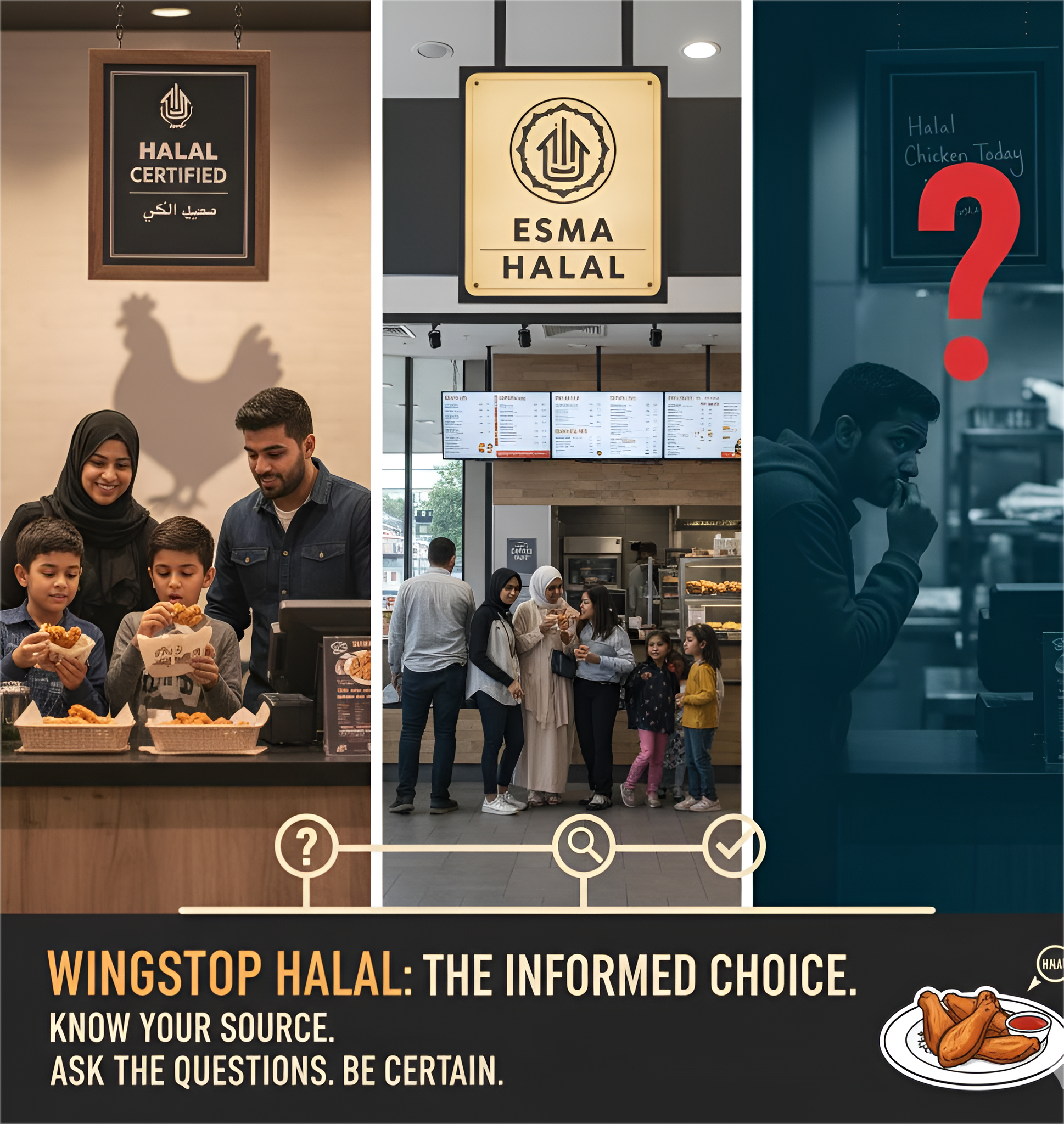
The Halal Question at Wingstop: A Deep Dive into What Muslims Need to Know
To Muslim consumers, the spicy and flavorful universe of Wingstop, a fast-food chicken wing giant worldwide, poses an essential question: Is it halal? But the answer is not so easily one of yes or no. It’s a rich brocade stitched together from geography, differing certification requirements, and contradictory interpretations of Islamic dietary regulations. This in-depth guide unwraps the layers of Wingstop’s halal status around the world, providing an ultimate guide for anyone who wants to navigate their menu according to their faith.
An international brand with a multicultural consumer base, Wingstop’s strategy towards halal is quite different across different countries. While there are some countries that have universally halal-approved Wingstop restaurants, others paint a not-so-clear picture, placing the responsibility of verification on the customer himself. This piece will analyze the nuances of Wingstop’s halal options, examining their supply chain, slaughtering process, and cross-contamination possibility, to present a lucid yet complex picture.
A Tale of Two Continents: The Halal Landscape of Wingstop Worldwide
The best definitive responses about Wingstop’s halal status are attained when looking at their operations country by country. What is acceptable and easily accessible in one location can be completely other in another, which indicates the varied cultural and religious landscapes in which the brand competes.
The United Kingdom: A Certified Promise with a Point of Contention
In the United Kingdom, Wingstop has explicitly and publicly pledged to serve the Muslim community. All of their chicken in UK restaurants is halal certified. The poultry is sourced by Wingstop from Gafoors of Preston, which is a supplier approved by the Islamic Institute of Jurisprudence. This certification brings a high degree of confidence for most Muslim customers.
But to some of the Muslim community, a key aspect of Wingstop’s UK business prompts a point to ponder: pre-stunning the chickens before they are slaughtered. Wingstop UK in a clear statement announces that their chickens are stunned to reduce suffering, a method endorsed by some halal certifying bodies on animal welfare grounds.
Islamic understanding of stunning is not homogeneous. There are scholars and certifying organizations, like the Halal Food Authority (HFA), who allow stunning but insist that it has to be reversible and does not precede slaughter by killing the animal. The thinking here is that if the animal would otherwise have survived the stunning and is still alive at the time of slaughter, halal requirements are fulfilled.
On the other hand, other major certification agencies, such as the Halal Monitoring Committee (HMC), are stricter in their approach and ban any use of stunning. Their rationale is that stunning raises a question about whether the animal was alive when it was cut, a fundamental condition for a legitimate Zabiha slaughter. For consumers observing the HMC standard, Wingstop’s UK menu would not be halal.
This difference in opinion serves to promote the necessity of private research and the practice of following personal or scholarship-based beliefs. While the chicken in Wingstop within the UK is undoubtedly halal-certified by an authority, the element of stunning is something that some Muslims will be required to address.
A Clear Affirmation in the Middle East and Southeast Asia
Within Muslim nations and those with strong halal food markets, Wingstop’s halal status is much clearer. In the United Arab Emirates (UAE) and Singapore, Wingstop is actually certified halal. This includes not just the chicken but also the full scope of their menu and food preparation procedures, so they will adhere strictly to Islamic dietary laws. For the consumers of these markets, a meal at Wingstop is accompanied by the complete guarantee of a trusted and accepted halal certification.
North America: A Patchwork of Uncertainty
The case in the United States and Canada is quite contrasting to the UK, UAE, and Singapore where there is clearness. In those North American markets, Wingstop lacks a blanket, countrywide halal certification. Offering halal alternatives depends on the choice of the individual franchise owners, which leads to a dispersed and quite confusing environment for Muslim consumers.
The United States: The corporate communications and official Wingstop USA website do not make any claims of having halal products. Most Wingstop units in the US are not halal, according to the common understanding of halal food bloggers and online community forums. The main chicken distributor for Wingstop in the US is not a certified halal distributor, so the fundamental ingredient of their signature products isn’t Islamic compliant.
Yet, there have been anecdotal accounts and assertions of particular Wingstop franchises operating within predominantly Muslim communities serving halal chicken. These examples are generally the result of the in-store franchisee making a deliberate choice to carry halal-certified chicken to serve their community. It cannot be verified through these reports, and direct contact with the individual restaurant is needed to confirm them. Customers should not only ask for the chicken to be halal but also request documentation of certification.
Canada: The situation in Canada is also unclear. Although some online information and halal food applications identify particular Wingstop restaurants as halal, there has been no confirmation of a national or even regional level halal certification by the brand. Again, as in the US, the presence of halal choices is likely to differ from one franchise to another. Canadian patrons are most strongly encouraged to call their local Wingstop to determine their halal status and to ask them questions about their suppliers and cross-contamination possibilities.
Going Beyond the Chicken: Examining the Entire Menu
To Muslim consumers, the question of a restaurant’s halal status goes beyond the main protein. Sauces, side dishes, and cooking techniques all contribute to whether or not a meal is actually halal.
The Issue of Alcohol in Sauces
Of great interest to many Muslims is the possibility of alcohol being included in food preparation, including sauces and marinades. Although Wingstop is transparent about allergens, complete ingredient details on their signature sauces are not always accessible to the public. This inconclusiveness could be a source of frustration for those attempting to provide alcohol-free food.
To this point, no conclusive public announcement from Wingstop has been made indicating that all their sauces are alcohol-free. Considering the intricacy of flavor profiles in their wide variety of sauce options, the use of trace amounts of alcohol as a flavor carrier or in extracts cannot be ruled out without a clear statement from the company. For people who prefer to avoid any trace of alcohol in food, this lack of clarity could be a turn-off.
The Ghost of Cross-Contamination
In non-halal restaurants, cross-contamination is a grave concern. Even if a restaurant serves a halal-certified protein, if it is cooked on the same utensils, in the same fryers, or on the same grill surfaces as non-halal foods, its halal status is sullied.
Applicable in the context of Wingstop establishments that are not entirely halal, this is a valid concern. For example, if a franchise sells both halal and non-halal chicken, there is a high likelihood of the same fryer oil or cooking apparatus being utilized for both unless strict segregation guidelines are followed. Bacon, a non-halal item, might also be included in some of the limited-time promotions or menu items in some locations, adding to the risk of cross-contamination.
For customers eating in a Wingstop that is less than 100% halal, it is necessary to ask their methods of avoiding cross-contamination. Some questions to ask are:
- Are there distinct fryers and utensils for halal and non-halal foods?
- Are employees taught the fundamentals of halal and the significance of avoiding cross-contamination?
- Are there specific preparation areas for halal food?
The responses to these questions will enable customers to make a decision based on knowledge regarding the food’s acceptability based on their individual standards.
The Voice of the Consumer: Experiences and Perspectives
The Muslim customer experience at Wingstop is as diverse as global halal policy across the brand. In the United Kingdom, Muslims eat freely at Wingstop alongside others, assured by the halal certification of their chicken vendor. The internet forums and public forums, too, include the voices of those who do not eat on account of stunning.
In North America, there is a tale of prudence and vigilance. Muslim food bloggers and social media influencers tend to report their own searches for halal Wingstop locations, recording their discussions with franchise owners and reviews of the restaurants’ procedures. These firsthand accounts, though not a replacement for official certification, are useful in assisting others who similarly traverse the same unknown landscape. The universal guidance that resounds through these communities is one: “When in doubt, ask. And if you’re still in doubt, it’s better to abstain.”
A Practical Guide for the Halal-Conscious Consumer
Taking Wingstop’s halal status into account calls for a proactive strategy. The following are some practical steps Muslim consumers can follow in order to make informed decisions:
- Check the Official Website for Your Region: The first step should always be to consult the official Wingstop website for your specific country. Look for a Frequently Asked Questions (FAQ) section or any statements regarding their halal policy.
- Look for In-Store Certification: If a particular Wingstop location claims to be halal, look for a visible halal certificate from a recognized and reputable organization. Do not hesitate to ask a staff member to see the certificate.
- Have a Conversation with the Restaurant: Call or go to your nearest Wingstop and make an appointment with the manager. Have some pointed questions regarding their chicken supplier, their halal certification, and their cross-contamination prevention measures.
- Use Halal Food Websites and Apps: There are some mobile apps and websites that specialize in locating halal food outlets. These can be helpful in gathering information and viewing reviews from fellow Muslim consumers. Just remember to always check that information is current, and hence it’s still best to double-check directly with the restaurant.
- Know Your Own Standards: Clearly know your own scholarly-informed or personal definition of what is halal. This is especially the case when considering things such as stunning.utions such as the Halal Monitoring Committee (HMC), make decisive criticisms on the basis of the principle of Yaqeen (certainty). Islamic law demands certainty that the animal was alive during the slaughter. Critics of stunning argue that it introduces an element of Shakk (doubt). It can be difficult to ascertain with 100% certainty whether a stunned animal is merely unconscious or has already died from cardiac arrest induced by the stun, particularly in a high-volume industrial setting. If the animal is already dead when it is cut, the resulting flesh becomes Maytah (carrion) and is absolutely forbidden (haram). To Muslims who adhere to this train of thought, doubt is too likely to allow stunning, so they only eat meat from verifiably unstunned animals. This jurisprudential divergence is the reason why a chain such as Wingstop UK may be halal certified according to the standards of one body but fail to qualify under the standards of another, leaving the decision to the educated consumer.
The Franchise Conundrum: Why North America Is Still Without a Single Halal Standard
The uncertainty of Wingstop’s halal status in the United States and Canada is not negligence but a direct result of its business model and the fragmented North American halal market. Wingstop is operated mostly on a franchise business model, where solo entrepreneurs own and manage most of the locations. This decentralization implies that corporate headquarters does not control a single, uniform supply chain for every location.
A Dearborn, Michigan, or Mississauga, Ontario, franchisee with a significant, established Muslim customer base has an obvious financial interest in serving the local customer base with locally sourced halal chicken. This entails identifying a trusted, certified halal supplier, which may be more expensive and involve alternative logistical arrangements than the typical corporate supply chain. The franchisee will also have to spend on staff training in halal methods and possibly on exclusive cooking utensils to prevent cross-contamination. This is a critical business action done at the local level.
On the other hand, a franchisee in a country with a small Muslim population has no or minimal financial incentive to go through this complicated and expensive procedure. It is easier and more profitable to stick with the standard, non-halal corporate supply chain. This is why an absolute “yes” or “no” for the whole country is not feasible.
In addition, in contrast to Singapore with government-sponsored Majlis Ugama Islam Singapura (MUIS) or the UAE with Emirates Authority for Standardization and Metrology (ESMA), North America has no one, internationally accepted halal certifying authority. There are dozens of organizations that provide halal certification using slightly varying standards, procedures, and acceptability in the multicultural Muslim community. For a chain like Wingstop, having one certifier and not another may lose them customers who have allegiance only to another. The easiest route for corporate office is simply to avoid the problem in the first place and let individual owners decide.
A Forensic Examination of the Kitchen: The Secret Threats in Ingredients and Preparation
For the responsible consumer, the halal question must reach beyond the chicken into every recess of the menu and kitchen. Today’s food processing business frequently employs sophisticated ingredients and additives, some of which have non-halal origins that are not at first apparent.
The Jurisprudence of Halal: A Deeper Dive into the Stunning Debate
In order to comprehend the debate about Wingstop in the UK, it is important to learn about the basic laws of Zabiha, the Islamic ritual method of slaughter. The procedure is not just a matter of killing an animal to eat; it is a religious process based on respect and awe for God’s creation. The key conditions of an acceptable Zabiha slaughter are:
- The Intention and Invocation: The killing has to be done by a Muslim adult who is sane and utters the name of Allah while killing, usually by stating “$Bismillah, Allahu Akbar$” (In the name of Allah, Allah is the Greatest).
- The Method: A sharp, deep cut is to be made using a razor blade, cutting the carotid arteries, the jugular veins, the windpipe (trachea), and the gullet (esophagus).
- The State of the Animal: The animal should be living and healthy at the time of the cut.
- Blood Drainage: The reason for this particular cut is to allow the quick and thorough draining of blood from the carcass, which is impure according to Islam.
The use of stunning in contemporary abattoirs offers a focal point of disagreement in Islamic law (fiqh). Supporters, such as certifying bodies like the Halal Food Authority (HFA), counter that stunning, when properly performed, fulfills the Islamic ideal of Ihsan (excellence and mercy) by reducing the pain and distress to the animal prior to slaughter. They prescribe that stunning should be “reversible”—that is, the animal would become conscious again if not slaughtered—and should not cause the death of the animal. From this position, provided the animal is alive when its throat is slit, the Zabiha holds. This approach is usually ratified by indicators to the effect that a well-stunned animal does not endure agony when being bled out.
Smaller interpretations, however, advocated by institutions such as the Halal Monitoring Committee (HMC), make decisive criticisms on the basis of the principle of Yaqeen (certainty). Islamic law demands certainty that the animal was alive during the slaughter. Critics of stunning argue that it introduces an element of Shakk (doubt). It can be difficult to ascertain with 100% certainty whether a stunned animal is merely unconscious or has already died from cardiac arrest induced by the stun, particularly in a high-volume industrial setting. If the animal is already dead when it is cut, the resulting flesh becomes Maytah (carrion) and is absolutely forbidden (haram). To Muslims who adhere to this train of thought, doubt is too likely to allow stunning, so they only eat meat from verifiably unstunned animals. This jurisprudential divergence is the reason why a chain such as Wingstop UK may be halal certified according to the standards of one body but fail to qualify under the standards of another, leaving the decision to the educated consumer.
The Franchise Conundrum: Why North America Is Still Without a Single Halal Standard
The uncertainty of Wingstop’s halal status in the United States and Canada is not negligence but a direct result of its business model and the fragmented North American halal market. Wingstop is operated mostly on a franchise business model, where solo entrepreneurs own and manage most of the locations. This decentralization implies that corporate headquarters does not control a single, uniform supply chain for every location.
A Dearborn, Michigan, or Mississauga, Ontario, franchisee with a significant, established Muslim customer base has an obvious financial interest in serving the local customer base with locally sourced halal chicken. This entails identifying a trusted, certified halal supplier, which may be more expensive and involve alternative logistical arrangements than the typical corporate supply chain. The franchisee will also have to spend on staff training in halal methods and possibly on exclusive cooking utensils to prevent cross-contamination. This is a critical business action done at the local level.
On the other hand, a franchisee in a country with a small Muslim population has no or minimal financial incentive to go through this complicated and expensive procedure. It is easier and more profitable to stick with the standard, non-halal corporate supply chain. This is why an absolute “yes” or “no” for the whole country is not feasible.
In addition, in contrast to Singapore with government-sponsored Majlis Ugama Islam Singapura (MUIS) or the UAE with Emirates Authority for Standardization and Metrology (ESMA), North America has no one, internationally accepted halal certifying authority. There are dozens of organizations that provide halal certification using slightly varying standards, procedures, and acceptability in the multicultural Muslim community. For a chain like Wingstop, having one certifier and not another may lose them customers who have allegiance only to another. The easiest route for corporate office is simply to avoid the problem in the first place and let individual owners decide.
A Forensic Examination of the Kitchen: The Secret Threats in Ingredients and Preparation
For the responsible consumer, the halal question must reach beyond the chicken into every recess of the menu and kitchen. Today’s food processing business frequently employs sophisticated ingredients and additives, some of which have non-halal origins that are not at first apparent.
Hidden Ingredients:
- Cheese: Numerous types of cheese are made with rennet, an enzyme that will curdle milk. Rennet is obtained traditionally from young calves’ stomach lining. If the calf was not killed in accordance with Zabiha laws, many scholars will consider the rennet and ensuing cheese non-halal. This might include dipping sauces or side dishes made with cheese.
- Bread and Dough Conditioners: Certain dough conditioners, such as L-cysteine, are employed to enhance the texture of bread items (such as the rolls from Wingstop). Though L-cysteine can be made synthetically or be extracted from plants, it has previously been extracted from human hair or chicken feathers, which means its origin is an important area of investigation.
- Fats and Shortenings: Whereas most fast-food restaurants today employ vegetable-based frying oils, shortenings utilized in baked foods or for flavoring may be fortified with animal fats such as lard (pork). This is strictly prohibited.
- Flavor Enhancers: Natural and artificial flavors are multi-component compounds. Alcohol is sometimes added as a solvent to transport the flavor, and although much of it evaporates when cooking, its original existence is a worry for more uptight Muslims. Animal ingredients can also be disguised as “natural flavors.”
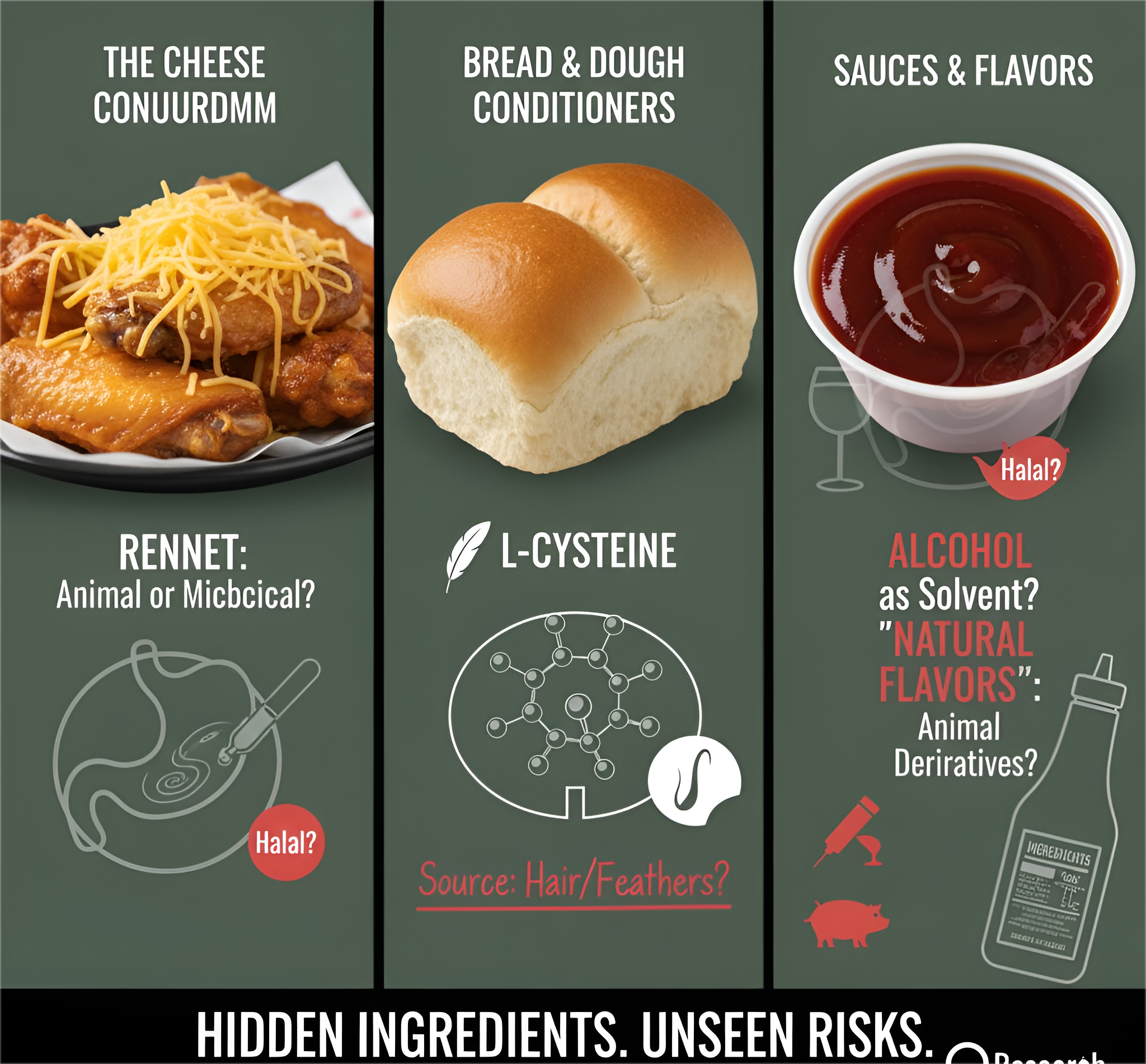
The Hidden Danger of Cross-Contamination:
Imagine a typical, busy fast-food kitchen that is not 100% halal. The risk of cross-contamination is pervasive and can occur at multiple points:
- The Fryer: This is the most crucial threat. One vat of oil may be used to prepare several items. If the same fryer is utilized for non-halal chicken wings and your “halal” fries, then the oil acts as a vehicle for the transfer of particles and flavor of the non-halal meat unto the fries, making them problematic. The same if a place were to serve both halal and non-halal chicken prepared in the same oil.
- The Grill/Cooktop: In the event of using a flat-top grill for any food, a residue from a previously cooked non-halal product (such as bacon in a limited-time promotion) may readily contaminate a halal product prepared on the same surface.
- Utensils: Tongs, spatulas, and baskets tend to be exchanged for each other in an environment of high speed. The same tongs employed in grabbing non-halal wings could be used a few seconds later to serve an order of fries or rolls.
- Employee Handling: Without rigid procedures and training, an employee can handle a non-halal item and then, without glove change, handle a halal item.
For a restaurant to truly avoid cross-contamination, it needs to have a strict system of segregation, such as color-coded cutlery, designated fryers and food preparation areas, and extensive staff training—a level of seriousness which is unusual in a typical, non-certified fast-food setting. That’s why, for many safety-conscious consumers, a restaurant cannot be half halal; it either has a fully halal-compliant regime or it doesn’t.
The Verdict: A Conditional Yes with a Strong Emphasis on Due Diligence
So, can Muslims eat at Wingstop? The answer is a conditional one.
- In Singapore and the United Arab Emirates: Yes, with complete confidence. Wingstop in these two nations is officially and in-depth halal certified.
- In the United Kingdom: Yes, the chicken is halal certified. But people need to be okay with the practice of pre-stunning. For those who are not okay, it would not be acceptable.
- In the United States and Canada: The response is mostly no, except for some individual franchises that might have gone ahead and become halal certified. It is crucial to confirm the status of each location separately and to be careful of cross-contamination. Without open certification, it is best to assume that a location is not halal.
For the international Muslim community, the search for halal cuisine is one of faith, awareness, and adherence to consuming that which is pure and permitted. Though Wingstop presents a mouthwatering variety of flavors, the onus remains with the customer to be diligent and to guarantee that the dining option is in accordance with their Islamic beliefs. As the world Muslim consumer market expands, there is some expectation that additional foreign brands such as Wingstop will trend towards greater openness and more standardized processes for halal certification, making the decision a bit less complicated and a lot clearer.
Conclusion: The Educated Choice in a Complicated World
Ultimately, the search to know whether or not Wingstop is halal unveils a landscape as complicated and varied as its extensive wing flavor list. There is no one, black-and-white answer, but rather a multitude of regional truths and guiding principles that leave the decision-making power resolutely in the hands of the consumer. The quest for a halal-conscious person is not about discovering a simplistic “yes” or “no,” but about comprehending the subtleties and doing justice.
For UAE and Singapore Muslims, the decision is a simple and comforting one. Broad-based, government-backed certification renders Wingstop an indisputably halal choice. In the United Kingdom, it is a qualified ‘yes’—the chicken is certified, but stunning poses an important jurisprudential intersection at which individual belief, led by erudite opinion, must be the final authority.
On the other hand, for the overwhelming majority of American and Canadian consumers, the default response has to be a reluctant ‘no’. The franchise model and the absence of a national halal standard provide the context of uncertainty, where the presence of halal alternatives is an exception, not the norm. It is the customer’s job to check the allegations of any particular place, to ask questions of suppliers, and to judge the very real threats of cross-contamination.
This in-depth examination of Wingstop’s business is an effective case study for the larger issues confronting Muslims in an integrated food system. It emphasizes that a halal question needs to look much further than the origin of the meat. It needs to reach to the molecular structure of ingredients found in sauces and rubs, and to the logistical realities of a fast-paced kitchen where utensils, fryers, and hands can blur the boundary between the allowed and the prohibited.
In the end, however, this article is not a definitive judgment but an exhaustive manual. It will equip the consumer with information—the information of Islamic legal frameworks, of food business practices, and of appropriate questions to ask. The educated decision, in turn, becomes the strongest weapon. It is the decision to demand a halal certificate from the manager, to seek information on segregated cooking facilities, and to leave when responses are not available or satisfactory.
As the world Muslim consumer base continues to expand its strength, there is a hope that global brands such as Wingstop will increasingly come to appreciate the significance of transparent, consistent, and comprehensive halal certification. Until then, the way forward for the dutiful consumer continues to be one of vigilance, education, and undeterred adherence to the laws of their religion.
For more like this : Hilalinfohub
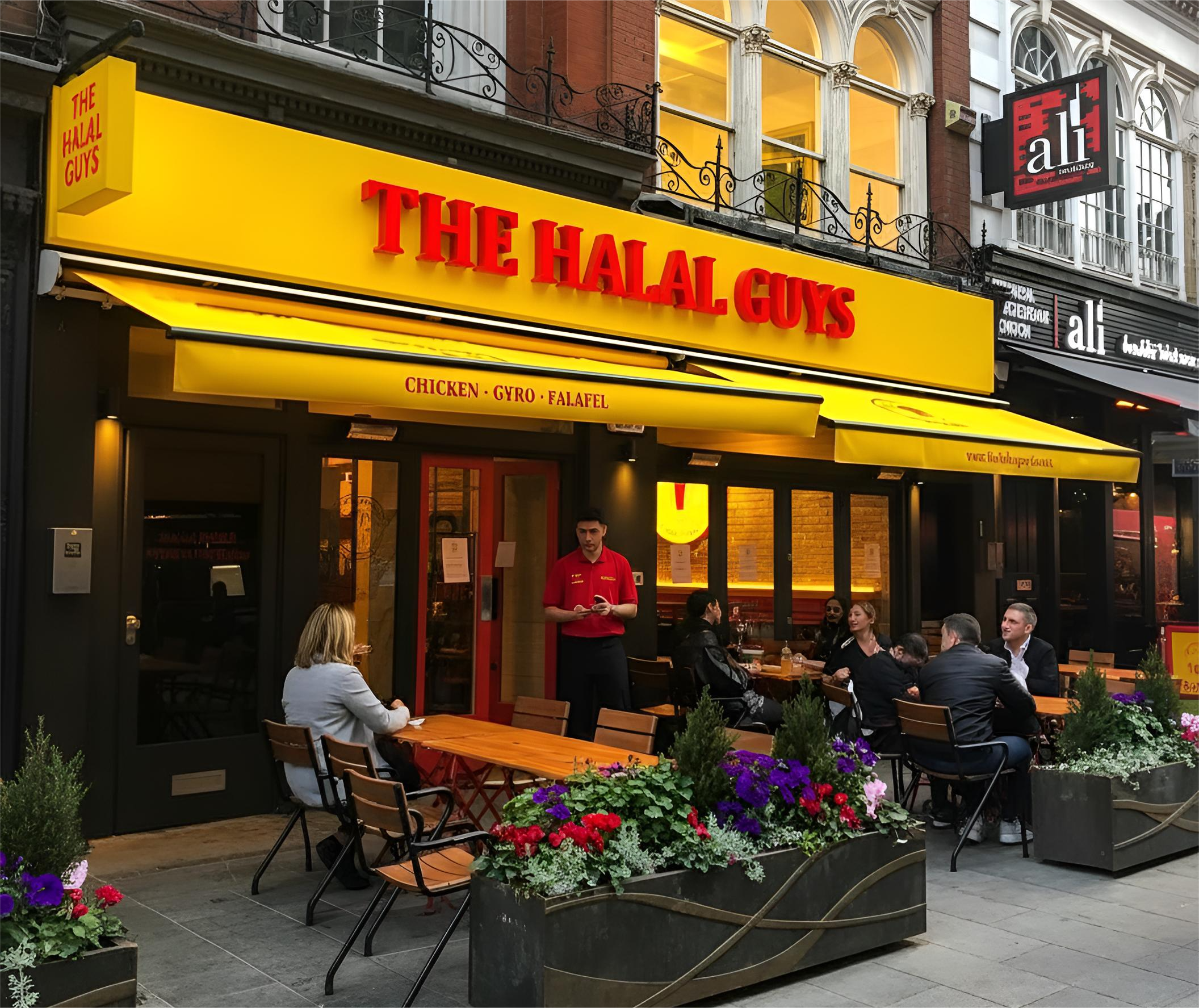
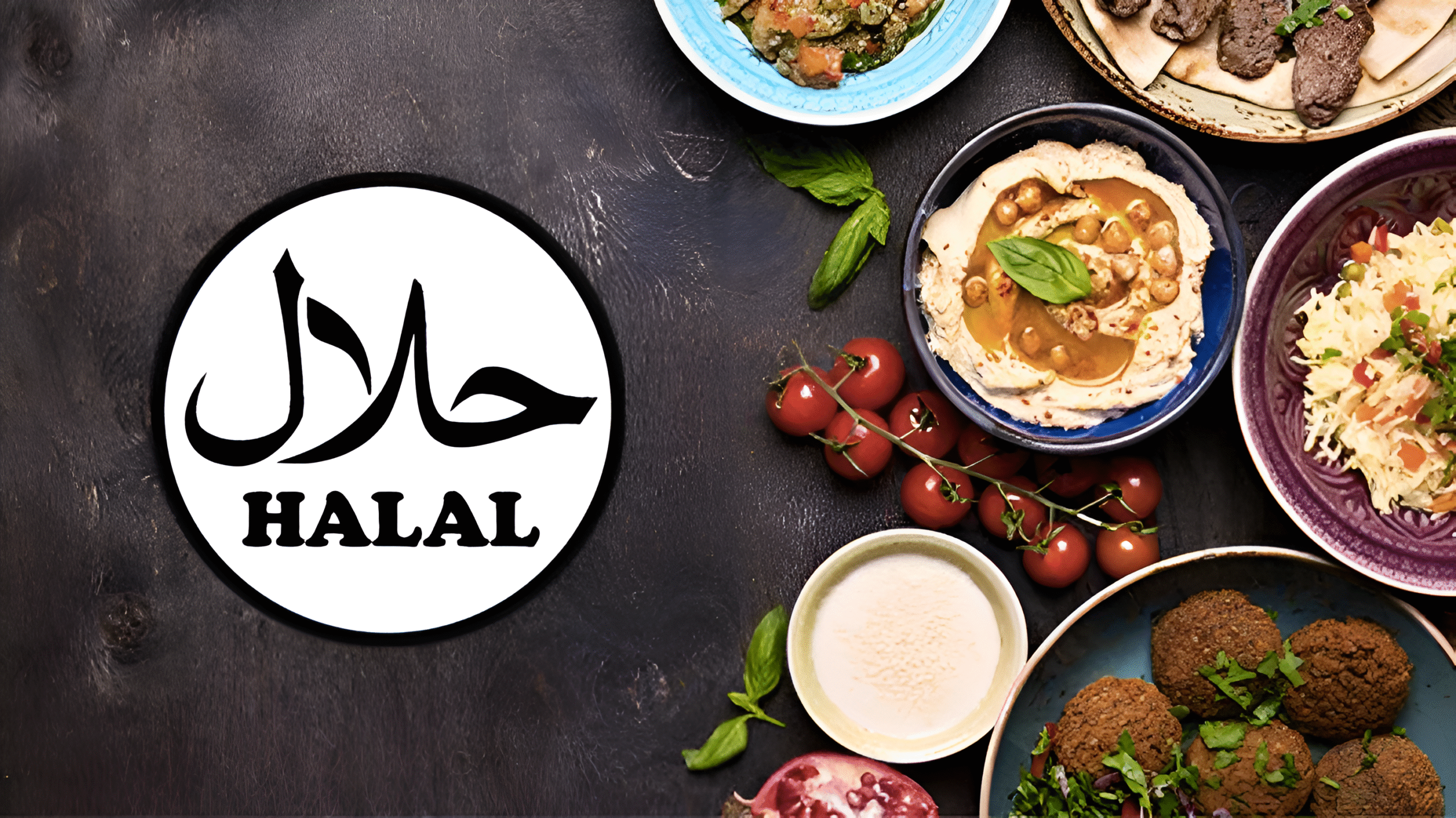
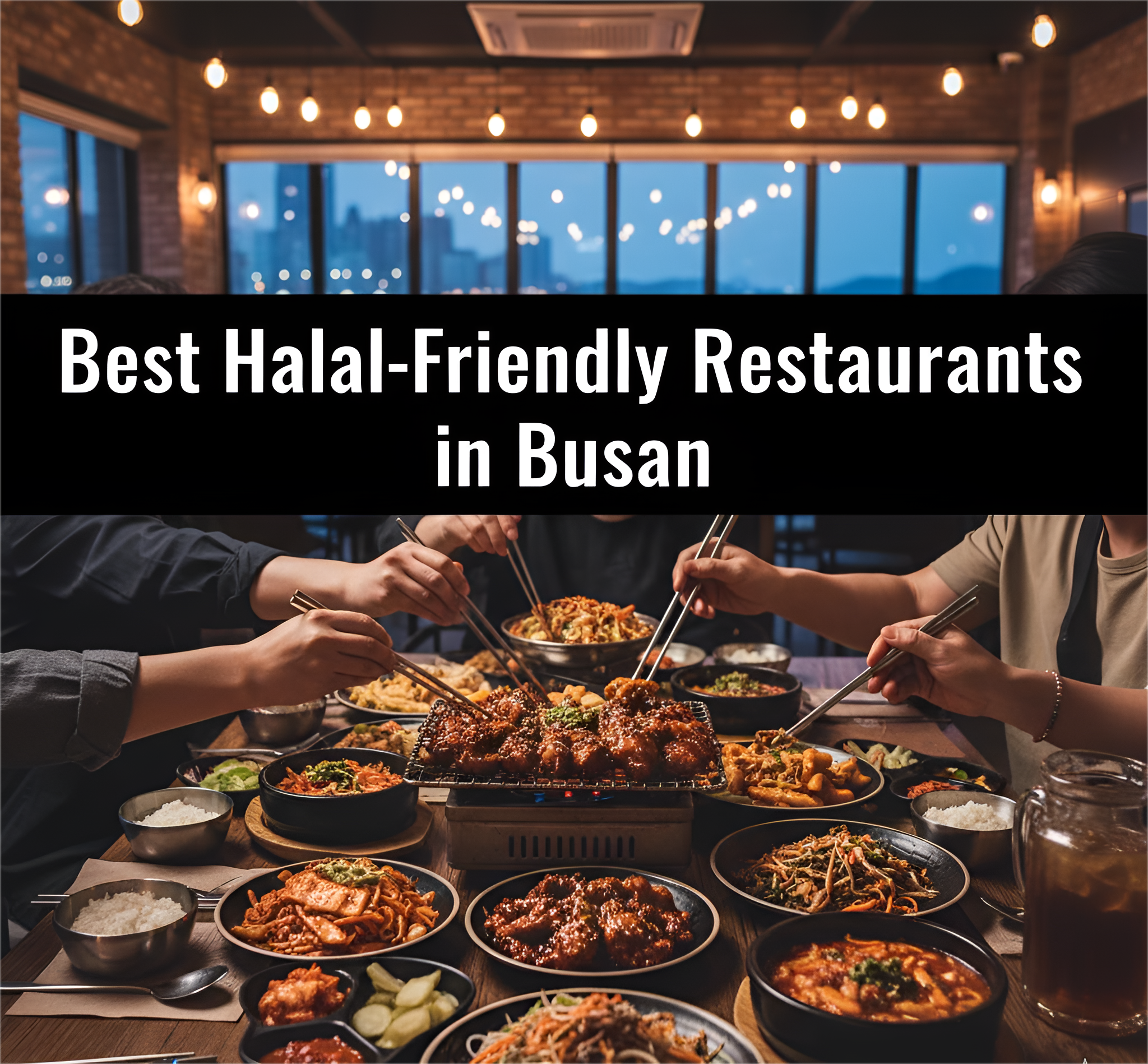
Post Comment